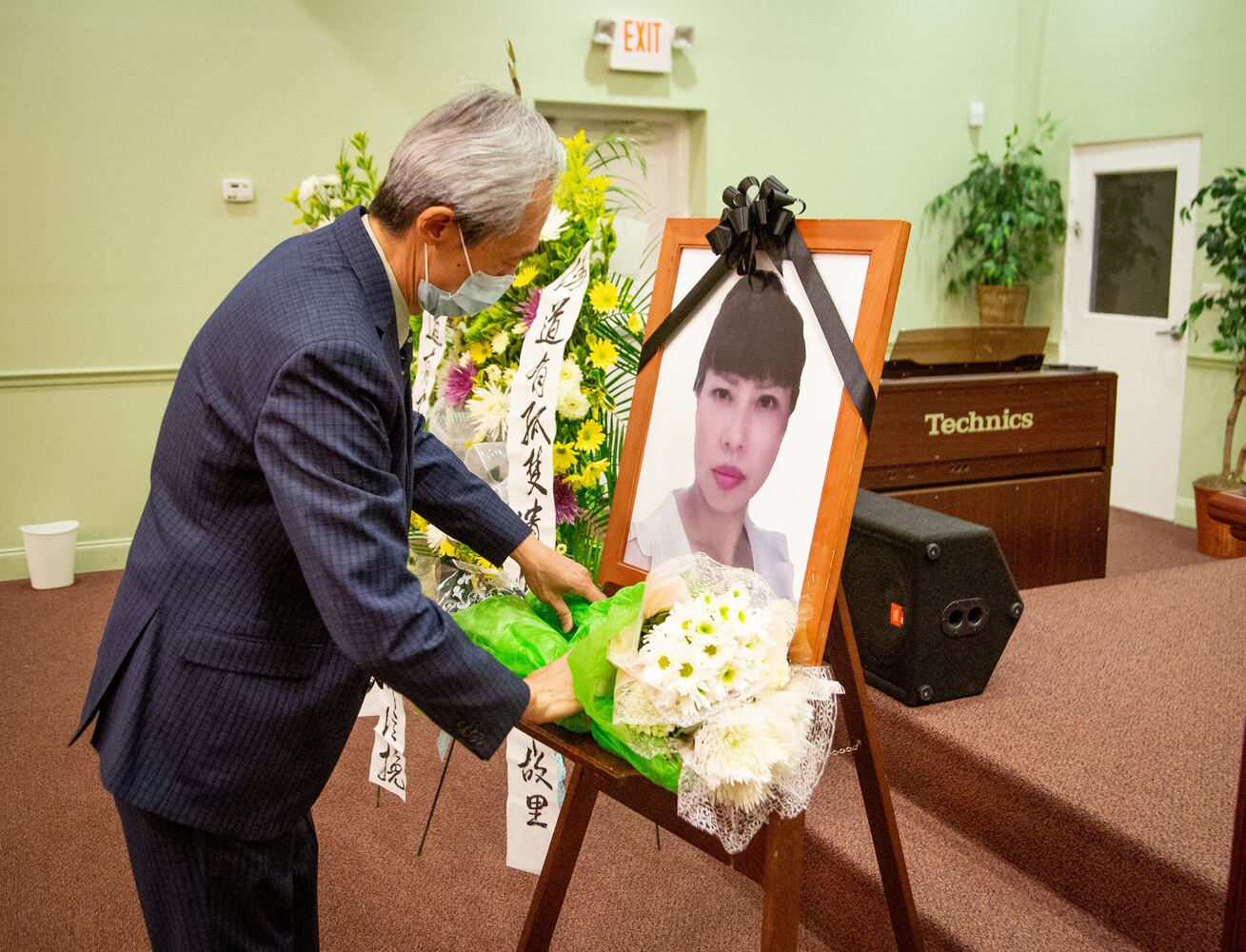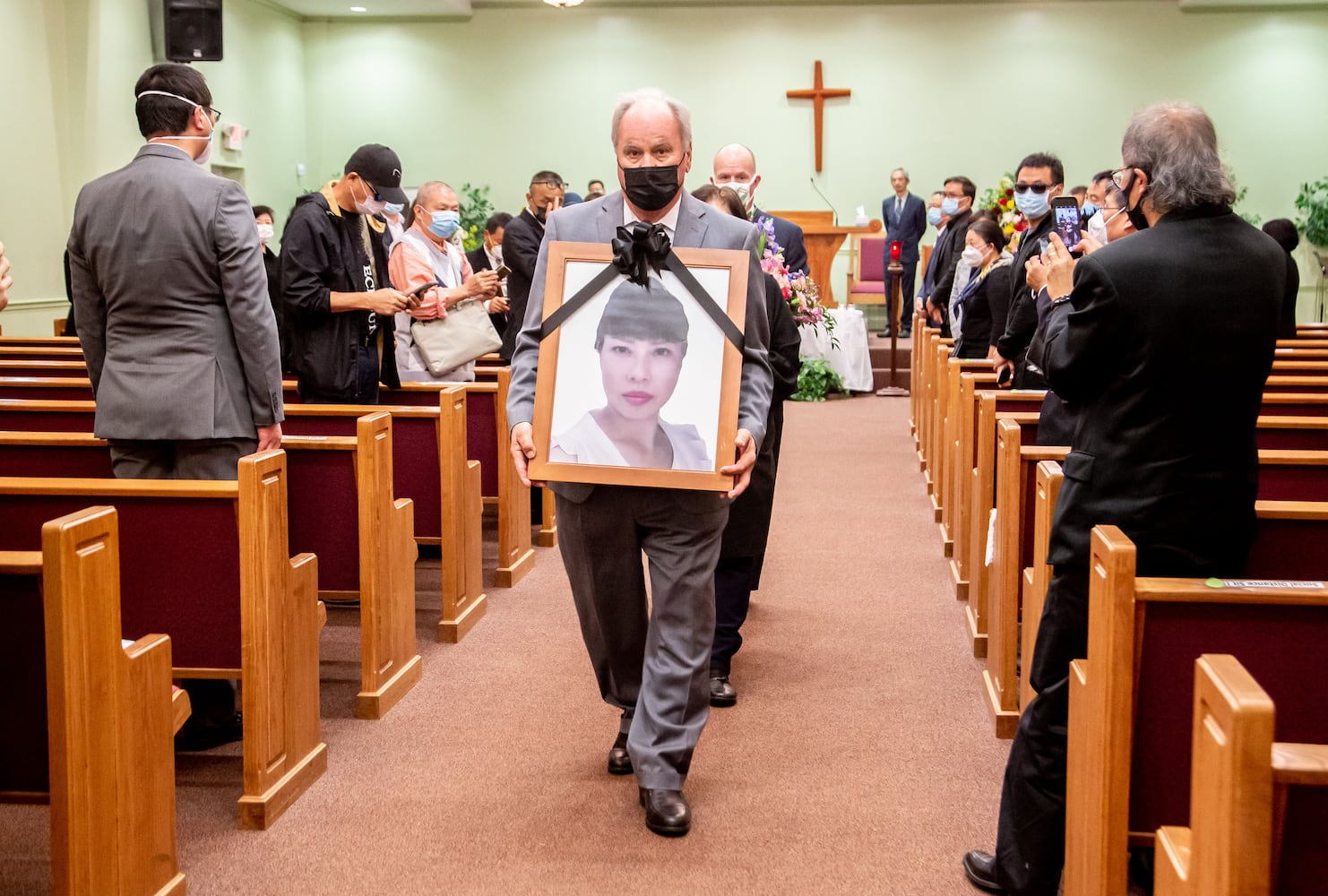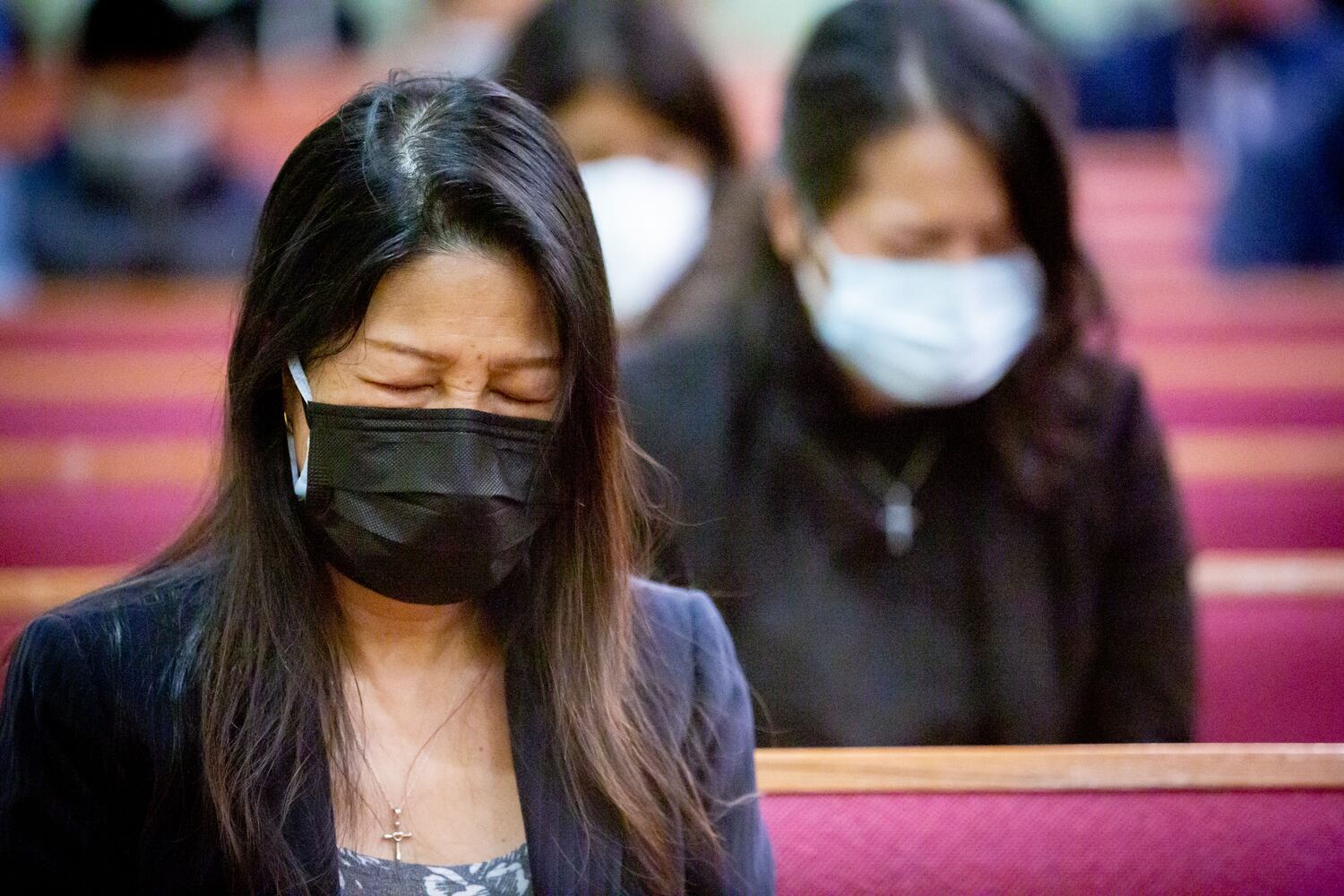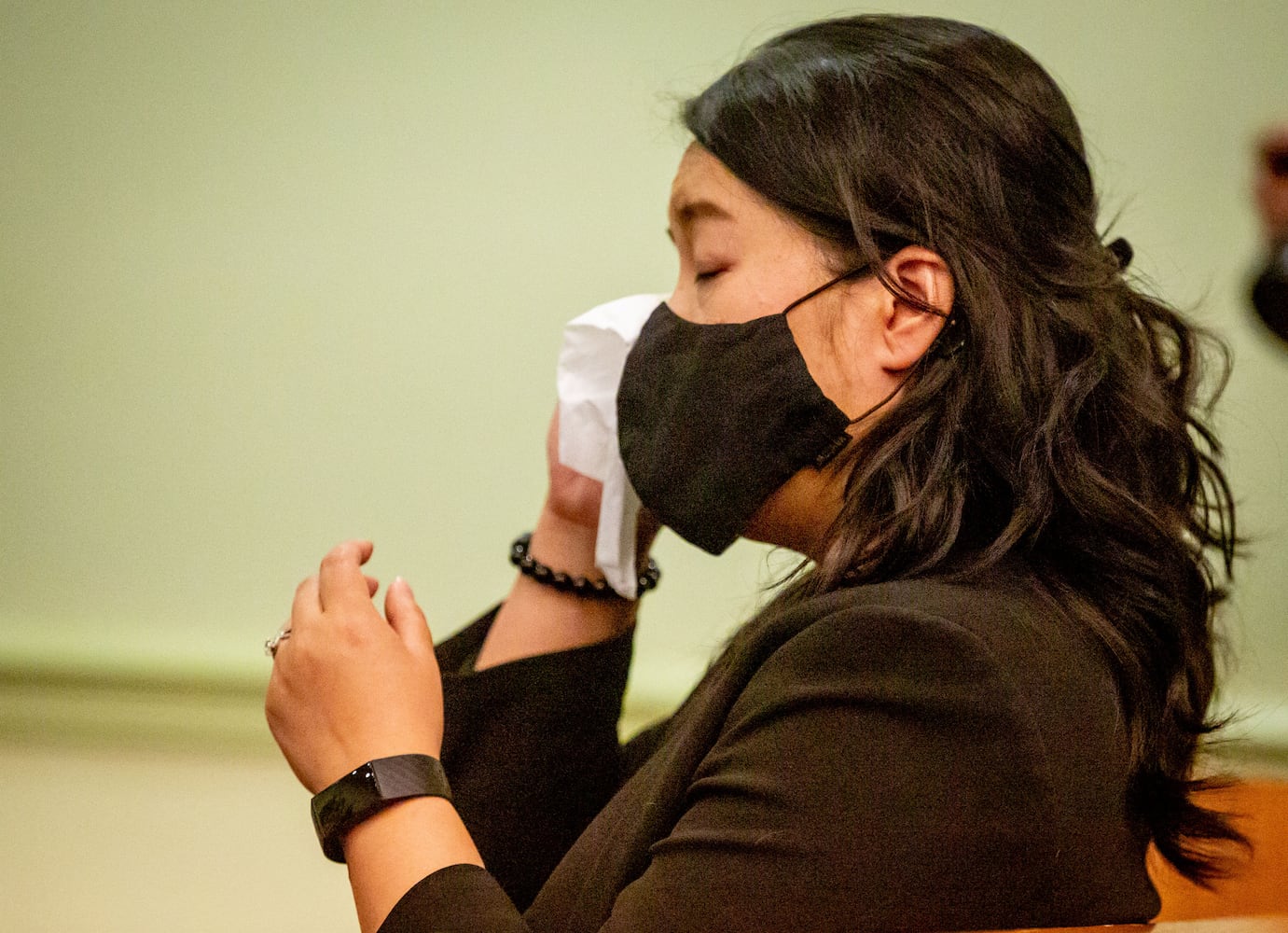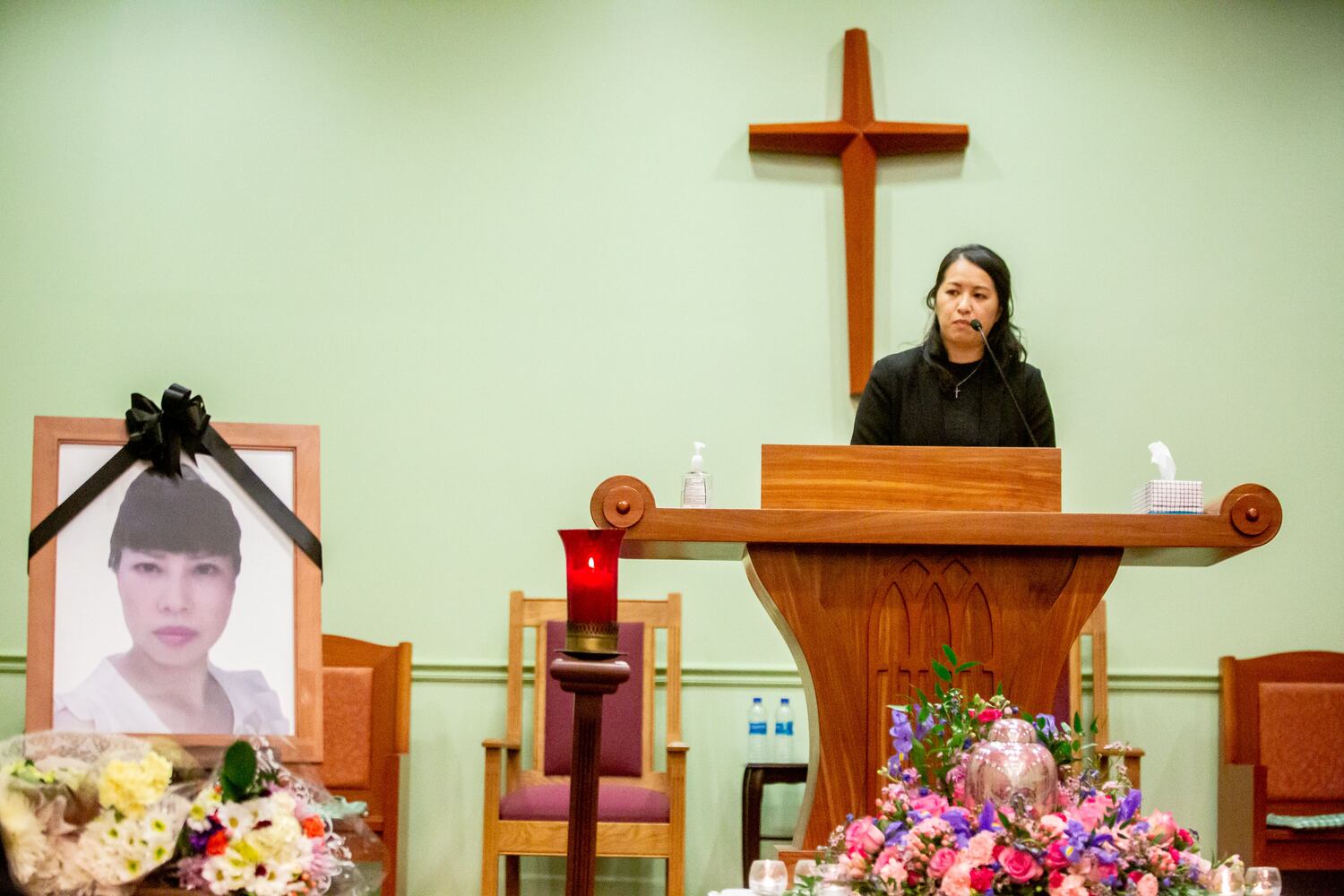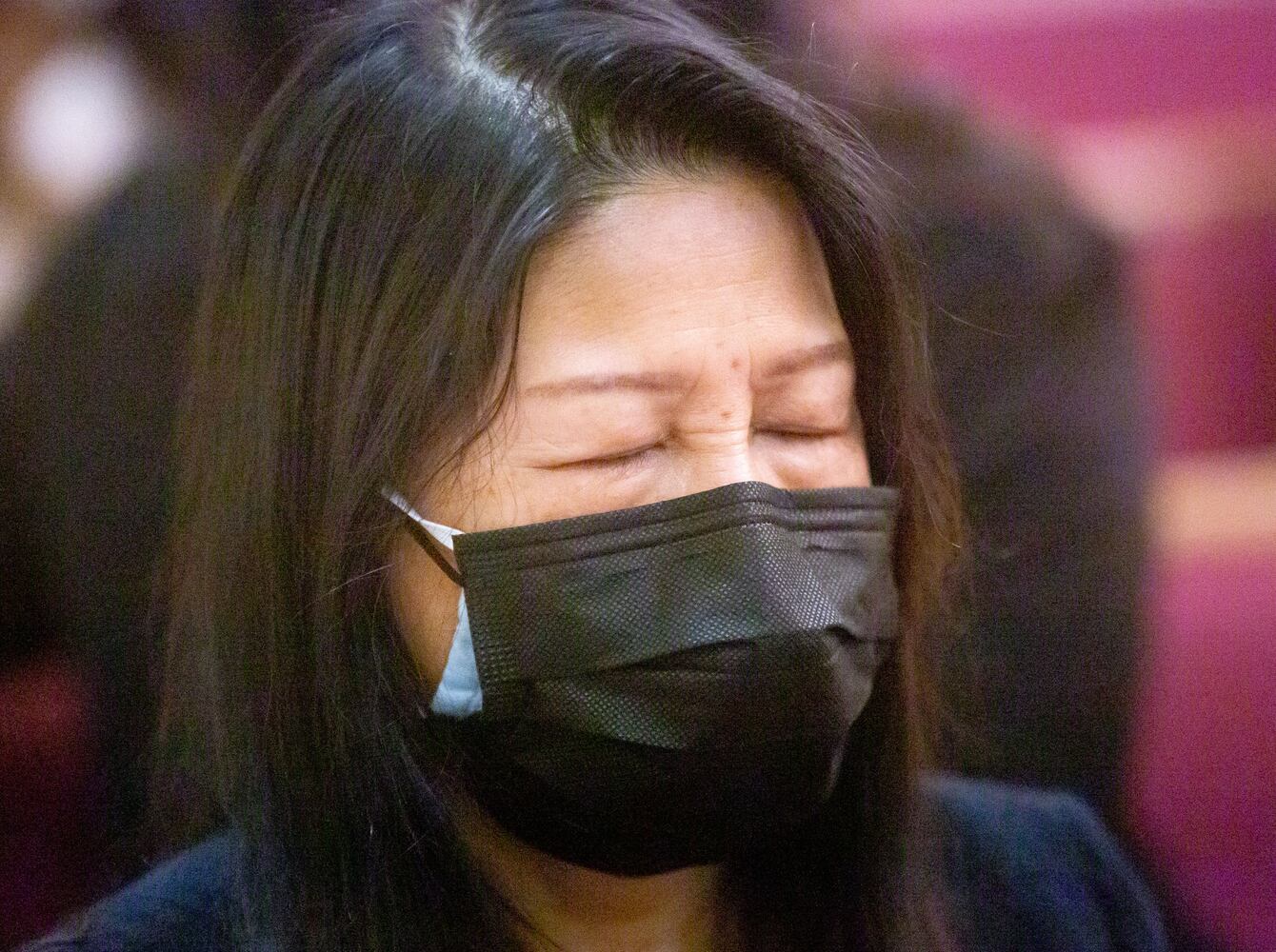Everyone saw the face at the front of the funeral home chapel.
It was in a picture, in a large wooden frame, wrapped in black ribbon. The woman with an earnest gaze wore a white blouse and black hair in a bun.
If any of the probably 50 people who looked at the photo recognized Daoyou Feng, none spoke up. Yet they attended her funeral.
A dozen people spoke on her behalf, though they knew very little about her, except that she was 44, from China and was killed in a gunman’s rampage in metro Atlanta on March 16. The admitted shooter terrorized three spas, killing eight people — six of them women of Asian descent — after legally buying the handgun the same day.
Credit: Steve Schaefer
Credit: Steve Schaefer
Feng had no family in America and had evidently only been in the Atlanta area for a couple months. Relatives in China couldn’t travel to Georgia because of the pandemic, and her mother is in poor health. But Charlie Li of the Atlanta Chinese American Alliance, the good Samaritan group that organized the funeral, told what little of Feng’s story he’s been able to glean from anguished phone calls with her family.
She was born on Jan. 11, 1977, in a rural area of the Guangdong province in southeastern China, not far from Hong Kong.
“Her parents were poor farmers who never went to school. She had two brothers and one sister,” Li said. “When she was 8 years old, her father died of an illness. She dropped out of school in third grade. She had to stay home and help her mother.”
When she got older, she went into the big cities for work. She learned to be a beautician. In 1999, her best friend had it in her mind to come to America.
We can have better lives, the friend said.
Feng agreed. She worked in Los Angeles and New York City, as a nail tech, a beautician and in spas. She always sent money to her mother. “From her family,” Li said, “she was a very bright, pleasant lady and always had a plan for her life.”
The plan was to move back to her hometown and open a business. She’d been saving money. She never married or had children in the U.S. because of this dream to go back to Guangdong. By 2020, she was ready to go. The pandemic kept her in the States. A little longer, she thought.
Feng’s relatives can’t understand why someone would walk into the place she worked and then kill four people.
“They kept asking me, ‘Why?’ ” Li said. “I couldn’t explain.”
Those who rose to speak sounded a common refrain of the need for solidarity among Asian Americans — an extremely diverse group. Unity, they said, is necessary to help bring an end to rising racism against them in America, largely in the wake of the coronavirus pandemic. Experts have said the shootings case could be prosecuted as a hate crime; the shooter claims he was motived by anguish over his sex “addiction,” not by race.
“Asian hate, especially against women, must stop,” said Michelle Kang, who said she wanted to speak on behalf of the local Korean American community.
Yawei Liu, a veteran adviser and program director at the Carter Center, pointed out the significance of Sunday. It was both Easter, a time to celebrate Christ’s resurrection, and for Chinese people, Tombs Sweeping Day, when people mourn their ancestors. The duality was fitting, he said, as he imagines Feng, gunned down in a horrific crime, in some far-off place where no one ever gets shot or discriminated against.
“As survivors, we need to unite with all Asian Americans. We need to unite with all people of color here and all other Americans,” Liu said. “We need to unite. We need to make our country better.”
At the end of the service, a procession of three escorted Feng’s remains to the awaiting hearse. A man carrying Feng’s photo led. Second was a woman who clutched the urn, pink and black with white doves in flight. Behind her, a man carried a vibrant spray of stargazer lilies, pink and red carnations and purple irises.
In the nearby cemetery, a Buddhist monk performed final rites. The urn was placed in its small above-ground vault. A stranger closed the door.
Credit: Steve Schaefer
Credit: Steve Schaefer
Those killed in spa shootings
Eight people died in the March 16 shootings at three metro Atlanta spas. Xiaojie Tan, 49; Daoyou Feng, 44; Delaina Ashley Yaun Gonzalez, 33; and Paul Andre Michels, 54, were shot and killed at a spa in Cherokee County. Yong Ae Yue, 63; Soon Chung Park, 74; Suncha Kim, 69; and Hyun Jung Kim Grant, 51, were shot later at two Atlanta spas.
About the Author
The Latest
Featured
